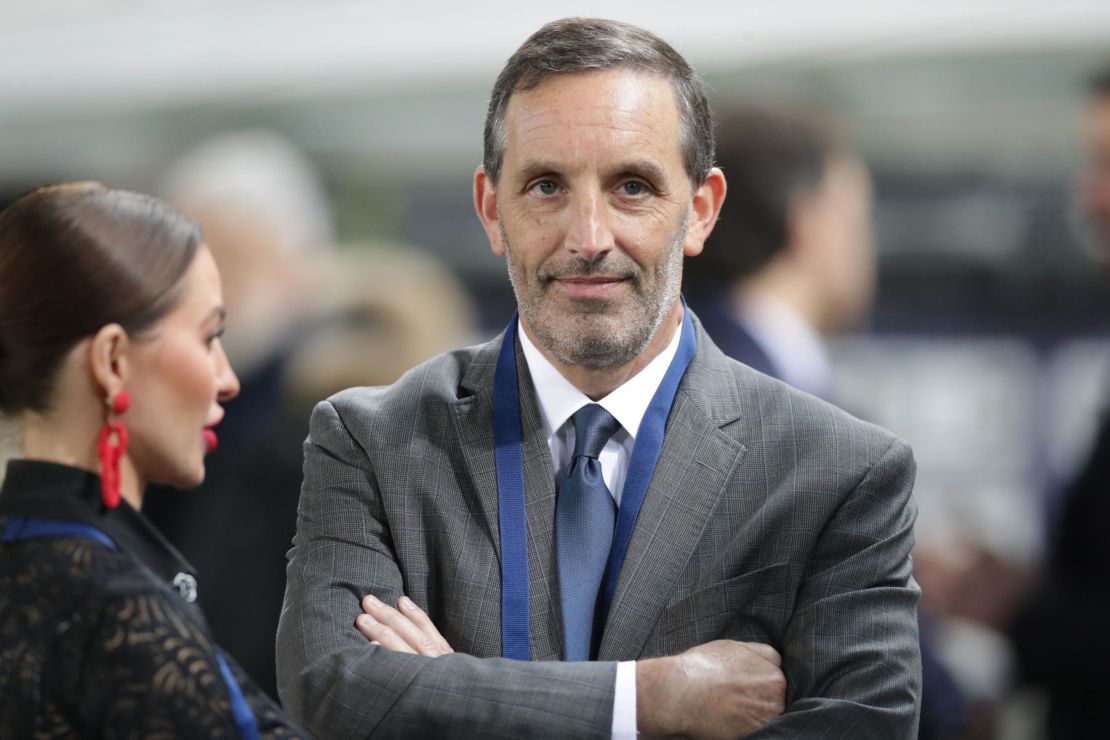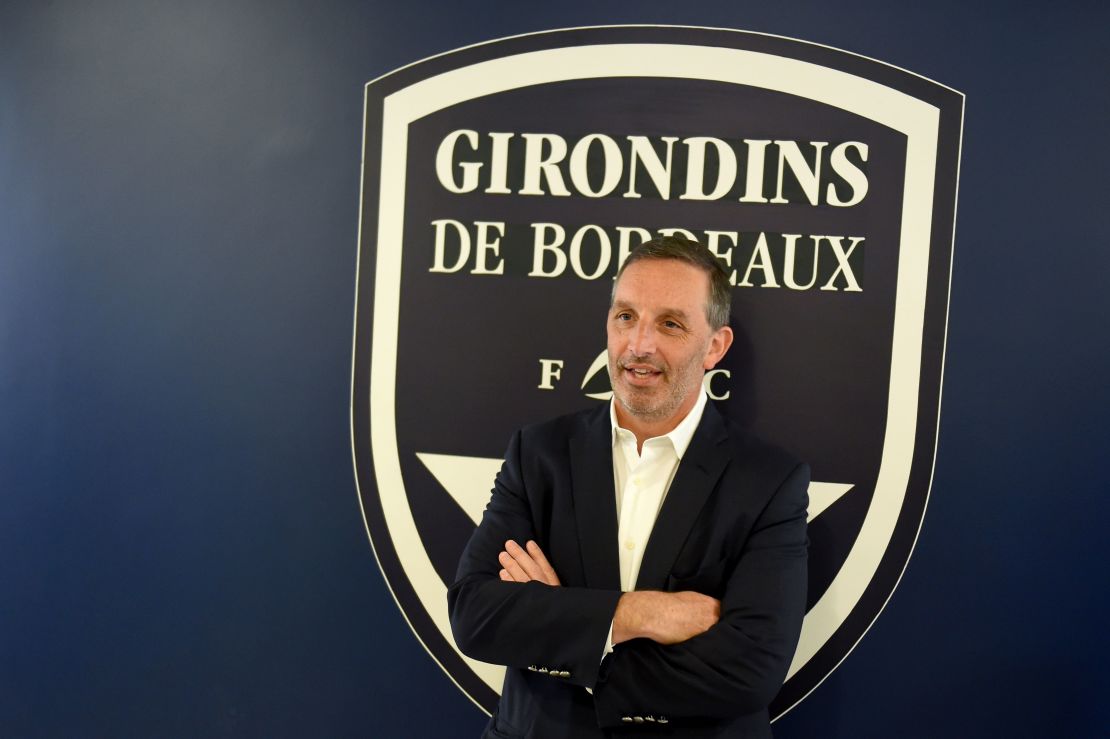With certain revenue streams dried up, football clubs, like many other sports franchises around the world, have been forced to take a financial hit amid the coronavirus pandemic.
As seasons resume across Europe, matchday revenues remain on hold as fans are kept away from stadiums, and in the Premier League, Deloitte estimates that rebates on broadcast and commercial deals – together with the lack of ticketing revenues – will result in a permanent loss of almost $650 million (£500 million) for clubs.
The situation is not just unique to the UK. Barcelona’s president Josep Maria Bartomeu said last month that the club has lost €200 million ($236 million) since March.
Yet one billionaire believes now is the perfect time to invest in the European game.
American investor Joseph DaGrosa Jr., chairman of Kapital Football Group (KFG), has already started ownership discussions with two Premier League clubs – although confidentiality agreements mean he can’t disclose who – and is poised to advance his plans with ownership platform KFG.
He calls the Premier League the “granddaddy of them all” when it comes to investing in football – “the league that people around the world look to for quality of play and that has the best recognition.”

Similar to Manchester City and City Football Group, KFG hopes to build a portfolio of clubs around the world, centered on an anchor club in one of Europe’s top leagues.
“We’re not overly concerned if a club is losing money, particularly in the Covid-19 environment,” DaGrosa tells CNN Sport.
“We understand the world has changed but we want to make sure that the club is positioned for on-field success which will ultimately lead to financial success.
“We want to make sure that the management on the sporting side is strong – which includes not just the manager, but also scouting – and that the infrastructure’s strong.
“We’re looking for clubs with good academies to develop local talent.”
READ: How billionaire owners changed European football
A good time to buy
DaGrosa led a takeover of French club Bordeaux in 2018, the second American businessman to invest in French football, but sold out last year.
He was also close to purchasing Premier League side Newcastle United last December before discussions with current owner Mike Ashley broke down.
Now, however, he believes the Covid-19 pandemic has presented a unique opportunity, particularly when it comes to signing players.
“I think there’s opportunity to buy clubs at lower prices than just a few months ago, but more importantly, there’s an opportunity to acquire players, at least for the next couple of transfer market windows, at pretty material discounts because clubs need cash,” explains DaGrosa.

“Just about every club out there with very few exceptions are looking for ways to shore up their finances and the easiest way to do that is to sell players.
“Everyone’s mindful of a need to not get relegated and so forth but I think a lot of clubs are faced with a very tough choice in terms of staying up in the table and generating cash through the sale of players and I think a lot of them are forced to sell players that they otherwise might want to keep.
“I think it’s a very good time if you can play offense in this transfer market window and be on the buying side; I think it’s a particularly good time to be on the buying side.”
READ: Lionel Messi says he will ‘continue’ at Barcelona
Diversifying revenue
City Football Group (CFG), which is owned by Abu Dhabi United Group and Emirati royal Sheikh Mansour, has emerged as a lucrative ownership model over the past decade.
Since the Abu Dhabi owners purchased Manchester City in 2008, the group has gone on to buy other clubs around the world, including in the United States, Australia, Japan, Uruguay, Spain and India.
The China Media Capital consortium bought a 13% stake of CFG for $400 million in December 2015, while US private equity giant Silver Lake acquired just over 10% of CFG for $500 million last year.

“The whole idea behind multiple club ownership is diversification of revenue streams and profits and synergies across the platform,” says DaGrosa.
“I think (CFG) has been very successful in creating that platform. It’s taken them quite some time to do that, and that’s not a criticism, that’s just how their plan has played out, a steady plan to grow over time.
“Our plan is, in this environment, we think there’s unique opportunities that have opened up to us that otherwise didn’t exist for CFG in the past.
“We want to capitalise on it, both in terms of speed of execution as well as ultimately what we’re paying for the clubs relative to what they may have paid.”
Club caretakers
DaGrosa’s time at Bordeaux may not have gone smoothly as far as results were concerned – the club finished 14th in Ligue 1 in the 2018/19 season, its lowest placing in 14 years – but he nevertheless sees the experience as a learning curve.
“As an American I had a newfound appreciation for the real passion for the sport in Europe and more particularly for the passion within a particular city,” he says.
It also reinforced his opinion that ownership is not necessarily about rewriting a club’s history books.
“As owners we’re just part of that club’s and that city’s long-term history and at the end of the day we’re just a small part of it in the grand scheme of things,” DaGrosa adds.
“As I always said in Bordeaux, the club’s been around 139 years, we were only part of that for just over a year.
“But had we been part of that for five years, 10 years or 15 years, it’s still nothing more than a piece of the continuum of the life of the club.”

